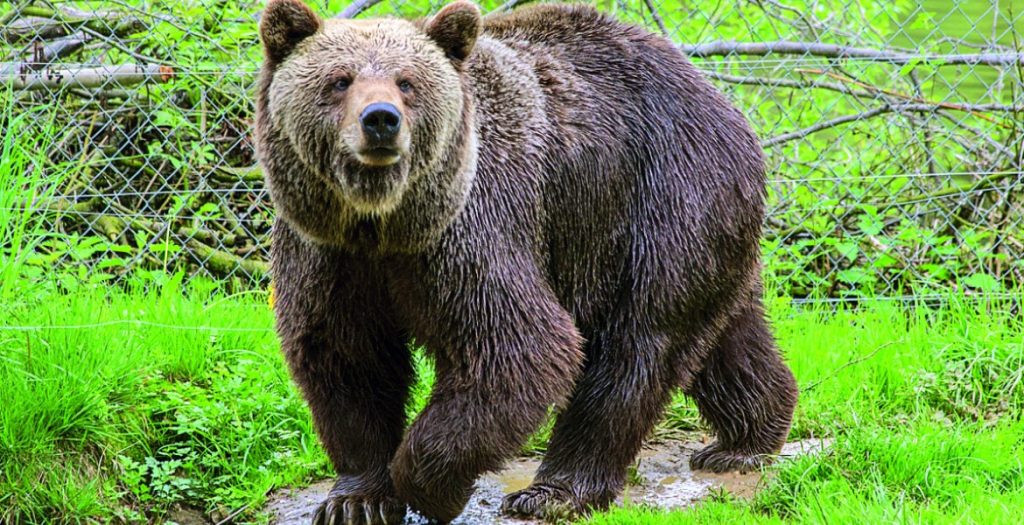The tragic death of veteran Greek hiker Christos Stavrianidis in a ravine fall following a bear encounter has cast a pall over the hiking community and sparked discussions about wildlife interactions in the rugged landscapes of northern Greece. The incident, which occurred on Monday in the Fraktou forest near Kavala, underscores the inherent risks associated with venturing into wild territories, even for experienced adventurers. Stavrianidis, a seasoned hiker known for his passion for exploring the natural wonders of his homeland, lost his life while pursuing a project to make the wreckage of a historic warplane more accessible to the public. This tragic turn of events has transformed a mission of historical preservation into a sobering reminder of the unpredictable nature of wilderness encounters.
The sequence of events leading to Stavrianidis’s demise began during a hike with fellow experienced hiker Dimitris Kioroglou. Their objective was to further explore the area surrounding the remnants of a Greek warplane that had crashed deep within the Fraktou forest decades earlier. Stavrianidis had rediscovered the wreckage the previous year and was actively involved in identifying a less challenging route to the site, driven by a desire to share this historical treasure with a wider audience. However, their journey took a devastating turn when they encountered a bear in the dense forest. According to Kioroglou’s account, the bear initiated the confrontation, prompting his dog to intervene, momentarily distracting the animal. Kioroglou then deployed pepper spray, which redirected the bear towards Stavrianidis, resulting in the tragic fall that claimed his life.
The bear encounter, while undoubtedly a tragic catalyst for Stavrianidis’s death, raises complex questions about the nature of wildlife interactions in shared spaces. Panos Stefanou, a spokesperson for the Greek wildlife group Arcturos, offered a perspective on the bear’s behavior, suggesting that it was likely acting defensively rather than aggressively. This interpretation highlights the inherent territorial instincts of wildlife and the potential for human presence to be perceived as a threat, particularly in remote, undisturbed habitats. The Fraktou forest, a vast and relatively untouched expanse of wilderness, serves as a natural sanctuary for bears and other wildlife, creating a complex interplay between human exploration and animal behavior. The incident serves as a stark reminder of the importance of understanding and respecting the boundaries of wildlife territories and the need for precautions when venturing into such environments.
Stavrianidis’s untimely death has resonated deeply within the hiking community and beyond, highlighting the inherent risks that accompany exploration of remote and challenging terrains. His passion for uncovering hidden historical gems and sharing them with the world underscores a spirit of adventure and a deep appreciation for the natural world. His rediscovery of the warplane wreckage, a testament to Greece’s history, had ignited a desire to make this forgotten piece of the past accessible to others, a project tragically cut short by the fateful encounter in the Fraktou forest. His dedication to preserving and sharing this historical treasure serves as a poignant reminder of the delicate balance between human exploration and the preservation of natural spaces.
The incident also prompts reflection on the protocols and preparedness measures necessary for safe navigation of wilderness areas, especially those known to harbor potentially dangerous wildlife. While experienced hikers like Stavrianidis and Kioroglou often take precautions, such as carrying pepper spray, the unpredictable nature of wildlife encounters necessitates constant vigilance and awareness. The Fraktou forest, with its dense vegetation and rugged terrain, presents inherent challenges for hikers, and the presence of bears adds another layer of complexity to navigating this wild landscape. The tragic outcome of this expedition emphasizes the importance of thorough planning, risk assessment, and a deep understanding of the environment and its inhabitants before embarking on such ventures.
The legacy of Christos Stavrianidis, a passionate explorer and advocate for historical preservation, will undoubtedly be intertwined with the tragic circumstances of his death. His commitment to uncovering and sharing the hidden treasures of Greece’s natural and historical landscape should serve as an inspiration to future generations of adventurers. However, his untimely demise also underscores a crucial lesson: the wilderness, while a source of wonder and discovery, demands respect, cautious exploration, and a profound understanding of the delicate balance between human presence and the preservation of wild spaces. The Fraktou forest, now a somber reminder of the risks inherent in wilderness exploration, stands as a testament to the importance of preparedness, vigilance, and a deep respect for the natural world and its inhabitants.


